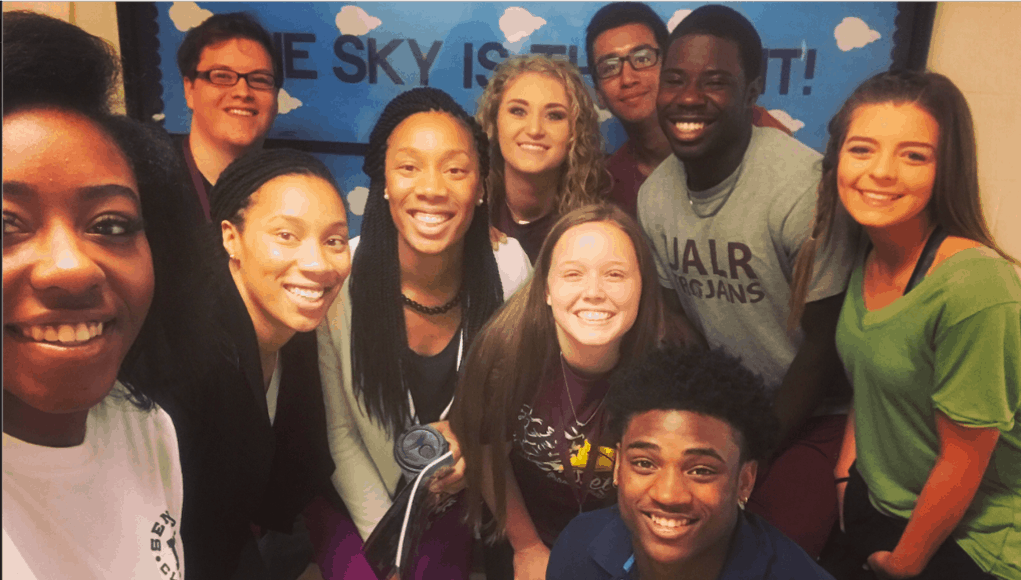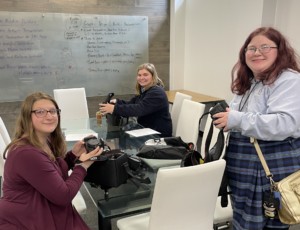Creating Reliable Hope in the Face of Rural Poverty

A recent visit to northern Arkansas provided a short course in rural poverty. A long drive through small towns and farmland painted a picture of generational poverty punctuated by occasional McMansions built by enterprising folks who had created a connection with the global economy.
The inequity experienced by those trapped in cycles of generational poverty is exacerbated by urbanization, globalization and automation. If we squint into the future we can see a mixture of good and bad–waves of job loss as smart machines take on more tasks and exciting new opportunities to add value for those determined and prepared.
ForwARd Arkansas is taking on this challenge by convening and supporting a group of school districts with the goal of “helping every Arkansas student graduate prepared for success in college and the workplace.” With support from the Winthrop Rockefeller Foundation and Walton Family Foundation, Forward Arkansas is supporting strategic reforms in five communities that will help students graduate prepared for success in college and the workplace.
“The big story is that it’s ForwARd’s most challenged communities in the Delta that are making the most progress,” said Susan Harriman, Executive Director of ForwARd Arkansas. “In meetings every other week since the ForwARd Thinking Conference, the confidence, engagement and excitement of each community is building. This is going to be big for our country.”
Through thousands of surveys and hundreds of meetings, Forward Arkansas developed A New Vision for Arkansas Education focused on seven key areas: Pre-K, teaching and learning, teacher pipeline, effective leadership, support beyond the classroom, leadership, academic distress and systems and policies. A steering committee developed a comprehensive set of recommendations.

Unique Rural Challenges
Leaders of the Forward Arkansas districts reminded me that small towns and rural settings pose three unique challenges. They are discussed below with examples of people beating the odds.
1. Historically Underserved Communities. The challenge is multi-generational with low levels of parental education and little or no out-of-school supports.
The 14 New Tech schools in Arkansas are among the growing number of schools showing what is possible despite a history of low performance. Rogers New Tech High School (near Bentonville in northwest Arkansas) is high performing and graduating its second class this month (read more about how Northwest Arkansas School Choice is helping place students in the right school for their needs and increasing state graduation rates).
2. Recruiting and Retaining Talented Teachers. It is often very challenging to recruit new talent to rural communities. “You can’t fire your way to success,” said Philip Hickman, superintendent in Columbus Mississippi. “That’s particularly true is a small rural town. You have to build the capacity of your staff.” Hickman developed a differentiated, job-embedded, tiered and staff-led professional learning system (see our feature and podcast with Dr. Hickman). 
3. Work-Based Learning is a Challenge. It is challenging to create work-based learning experiences for all students in rural communities. However, some students may not perform as well as others on standardized tests, instead excelling in skills-based work. Adequately positioning them for that success is crucial and can sometimes even be life-changing.
Toyce Newton, a ForwARd community stakeholder, said, “Nationally we’ve all struggled with how to increase and make educational equality an achievable goal for all children. As daunting as this task is, we in rural America often find ourselves in a more perilous predicament, and most agree that more focused approaches should include designing and refining interventions that take into account factors such as culture, resources and a desire to be inclusive in moving all Americans forward. We embark now on solutions for rural Arkansans using the resources ForwARd Arkansas helps us realize, including best practices and access to industry experts.”
To succeed in the goal of continuous assessment, ForwARD has recognized that partnerships must also exist outside the school walls and into the business and higher education community, such as their growing relationships with the University of Arkansas Community College at Batesville and Lyon College, as well as several area employers. On the trip to Arkansas, we had the opportunity to tour the Batesville facilities of Bad Boy Mowers, a homegrown success story, where high school students can earn college credit and technical certifications in while in high school.

Cross County High School (northwest of Memphis) developed a virtual mentoring program (with some really cool people like an MIT prof [on the left] and a scientist [on the right] from GSK in Belgium).

Work That Makes Students, Parents and The Community Proud
“In this divisive time in America, we are working hard to send the message that that it doesn’t matter if you are in a red state or blue state, rural or urban,” said Ron Berger, CAO at EL Education. “All kids deserve worthy work to do, and we as educators are all in this together.”
Berger said he’s been working in West Virginia and Alabama with legislators and districts challenged by rural poverty. He’s pleased to see their open source materials and books are being used well in these places.
In Alabama, educators are discussing Leaders of Their Own Learning, a book about student-engaged assessment (e.g., student-led conferences, presentations of learning, critique and feedback in service of quality work). “Very traditional districts are trying out some of these practices, and it is so good to see,” added Berger.
Berger thinks his career-long focus on “supporting and compelling students to do well-crafted work that makes them, their families and their communities proud” can be an even stronger message in rural communities.
“Craftsmanship and pride in work is a traditional American value,” said Berger. “Working class families can connect to this just as easily as middle-class academic ones–or even more so.”
High quality work should not be categorized as “progressive”; it’s what we all value.
For more, see:
- What’s The Next Big Idea? Microschool Networks
- Maritime and Place-Based Learning in a Rural District
- Closing the Last Mile of Career Opps in Rural America
- Mississippi District Personalizes Learning for Teachers and Students
Stay in-the-know with all things EdTech and innovations in learning by signing up to receive the weekly Smart Update.




0 Comments
Leave a Comment
Your email address will not be published. All fields are required.